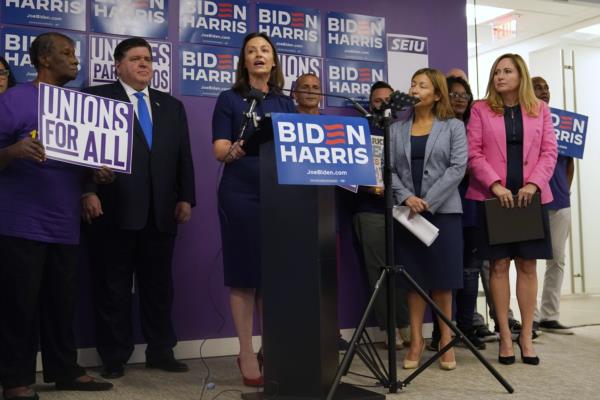
The Israel-Hamas war has had significant political consequences for President Biden and is now reverberating within the Democratic Party, particularly in the upcoming 2024 House Democratic primaries. The conflict has exacerbated divisions between the party's base and its progressive wing, creating an opportunity for moderate challengers to take on high-profile progressive incumbents who have been vocal in their criticisms of Israel.
Notable progressive incumbents expected to be impacted by this dynamic are Cori Bush, Jamal Bowman, and the members of the so-called 'squad' - Rashida Tlaib and Ilhan Omar. The Israel lobby has been actively recruiting candidates to challenge these incumbents and is projected to allocate three times the amount of money spent in the 2022 cycle, totaling around $90 million, towards the upcoming primaries.
Progressive leaders are concerned about the infighting within the Democratic Party and caution against the influence of single-focused interest groups. They highlight how the American Israel Public Affairs Committee (AIPAC) endorsed more than 100 Republican members of Congress in the 2022 cycle, including those who voted to overturn the election results, underscoring the complexities of these alliances.
While some Democrats worry that this focus on primary challenges may divert attention and resources from vulnerable districts contested by Republicans, it is important to note that incumbents have a stronghold in their districts. Popular progressive figures like Rashida Tlaib have built strong relationships with constituents and demonstrated effective fundraising abilities. Nonetheless, the influx of outside money remains a potential threat to these incumbents, as financial resources often play a crucial role in election outcomes.
Beyond the implications for primaries, the Israel-Hamas conflict has also affected legislative progress on Capitol Hill. Efforts to pass a foreign aid package have encountered difficulties, with negotiations postponed and potentially entangled in debates surrounding border security spending. As lawmakers return from the holiday recess, the Senate's pursuit of a deal will need to align with the Republican-controlled House's approval, adding further complexity to the process.
Additionally, looming issues such as government funding and potential shutdowns will demand attention, potentially diverting focus from foreign aid discussions. These impending challenges underscore the urgency of the upcoming weeks in January, where lawmakers will face a packed agenda with multiple important appropriation battles on the horizon.
In light of these developments, the stage is set for a tumultuous 2024 election cycle, with the Israel-Hamas conflict taking center stage as a prominent issue. The outcome of the House Democratic primaries will serve as a barometer for the shifting dynamics within the party and the broader national response to the conflict. As January approaches, lawmakers brace themselves for a frenzied period of legislative action amidst a charged political landscape.







